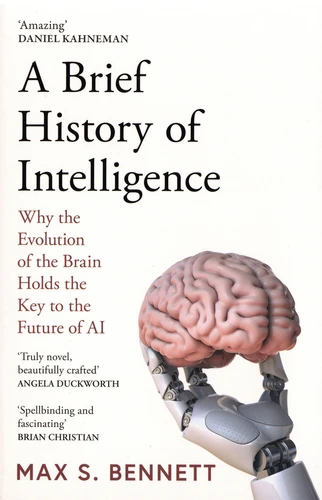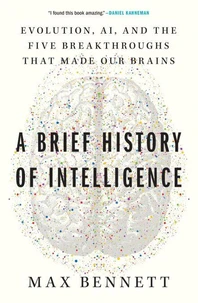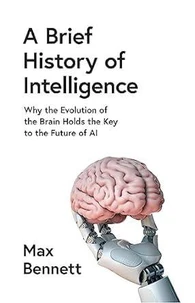A Brief History of Intelligence. Why the Evolution of the Brain Holds the Key to the Future of AI
Par :Formats :
- Paiement en ligne :
- Livraison à domicile ou en point Mondial Relay indisponible
- Retrait Click and Collect en magasin gratuit
- Réservation en ligne avec paiement en magasin :
- Indisponible pour réserver et payer en magasin
- Nombre de pages416
- PrésentationBroché
- FormatGrand Format
- Poids0.38 kg
- Dimensions13,0 cm × 20,0 cm × 4,0 cm
- ISBN978-0-00-856013-3
- EAN9780008560133
- Date de parution15/10/2024
- ÉditeurWilliam Collins
Résumé
In a world transformed by artificial intelligence, the human brain is still able to perform intellectual feats that cannot be replicated. AI can write Shakespearean poetry, steer cars, beat a grandmaster at chess and even pass the bar exam, but why does it struggle with seemingly simple tasks like loading a dishwasher ? Finding the answer requires diving into the billion-year history of how the human brain evolved, combining evolutionary neuroscience with cutting-edge AI research.
Our brains have secrets to share, and the future of AI may depend on understanding them.
Our brains have secrets to share, and the future of AI may depend on understanding them.
In a world transformed by artificial intelligence, the human brain is still able to perform intellectual feats that cannot be replicated. AI can write Shakespearean poetry, steer cars, beat a grandmaster at chess and even pass the bar exam, but why does it struggle with seemingly simple tasks like loading a dishwasher ? Finding the answer requires diving into the billion-year history of how the human brain evolved, combining evolutionary neuroscience with cutting-edge AI research.
Our brains have secrets to share, and the future of AI may depend on understanding them.
Our brains have secrets to share, and the future of AI may depend on understanding them.




